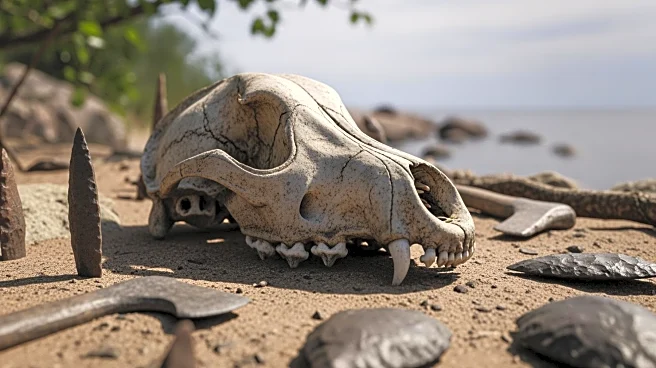What's Happening?
Researchers have uncovered wolf remains on the isolated Baltic Sea island of Stora Karlsö, suggesting that prehistoric humans may have managed or controlled these animals. The study, published in the Proceedings
of the National Academy of Sciences, involved genomic analysis confirming the remains as wolves, not dogs, with no evidence of dog ancestry. The wolves exhibited traits associated with life alongside humans, such as a diet rich in marine protein, similar to the human inhabitants of the island. The discovery challenges conventional understanding of wolf-human dynamics and dog domestication, indicating a complex relationship between humans and wolves in the past.
Why It's Important?
This discovery provides new insights into human-animal interactions during the Neolithic and Bronze Ages, suggesting that humans may have had more complex relationships with wolves than previously thought. The presence of wolves on an island with no native land mammals implies deliberate human intervention, potentially altering our understanding of domestication processes. The findings could influence current perspectives on human-animal relationships and the evolution of domesticated species, offering a broader view of prehistoric human societies and their interactions with wildlife.









